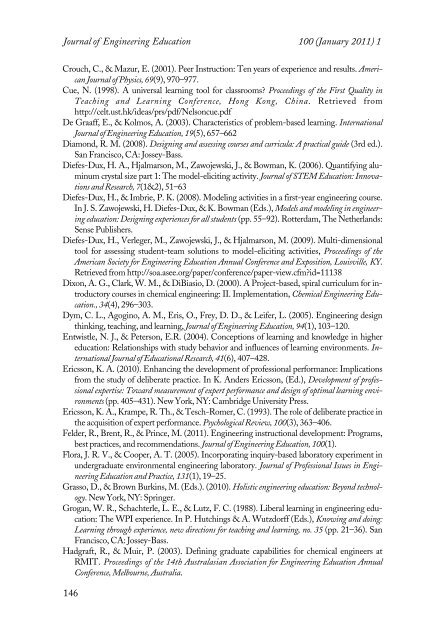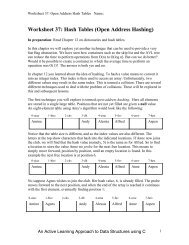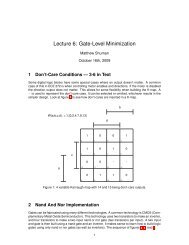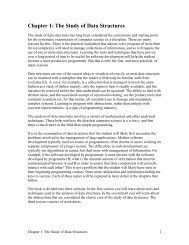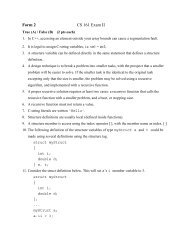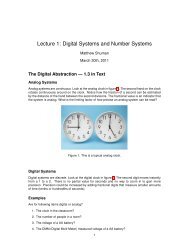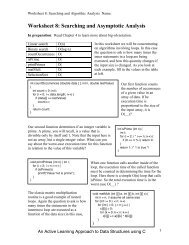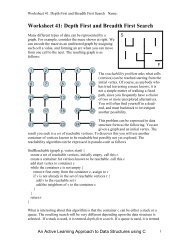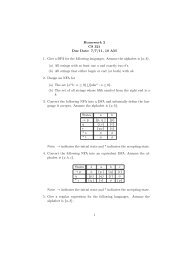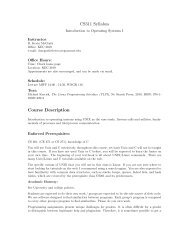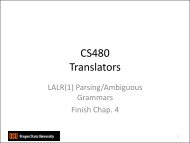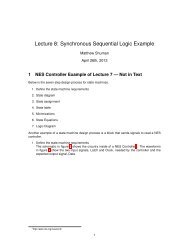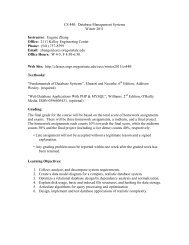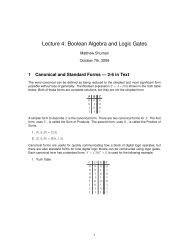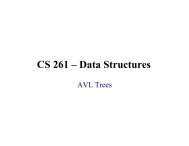Engineering Education and the Development of Expertise - Classes
Engineering Education and the Development of Expertise - Classes
Engineering Education and the Development of Expertise - Classes
Create successful ePaper yourself
Turn your PDF publications into a flip-book with our unique Google optimized e-Paper software.
Journal <strong>of</strong> <strong>Engineering</strong> <strong>Education</strong> 100 (January 2011) 1<br />
Crouch, C., & Mazur, E. (2001). Peer Instruction: Ten years <strong>of</strong> experience <strong>and</strong> results. American<br />
Journal <strong>of</strong> Physics, 69(9), 970–977.<br />
Cue, N. (1998). A universal learning tool for classrooms? Proceedings <strong>of</strong> <strong>the</strong> First Quality in<br />
Teaching <strong>and</strong> Learning Conference, Hong Kong, China. Retrieved from<br />
http://celt.ust.hk/ideas/prs/pdf/Nelsoncue.pdf<br />
De Graaff, E., & Kolmos, A. (2003). Characteristics <strong>of</strong> problem-based learning. International<br />
Journal <strong>of</strong> <strong>Engineering</strong> <strong>Education</strong>, 19(5), 657–662<br />
Diamond, R. M. (2008). Designing <strong>and</strong> assessing courses <strong>and</strong> curricula: A practical guide (3rd ed.).<br />
San Francisco, CA: Jossey-Bass.<br />
Diefes-Dux, H. A., Hjalmarson, M., Zawojewski, J., & Bowman, K. (2006). Quantifying aluminum<br />
crystal size part 1: The model-eliciting activity. Journal <strong>of</strong> STEM <strong>Education</strong>: Innovations<br />
<strong>and</strong> Research, 7(1&2), 51–63<br />
Diefes-Dux, H., & Imbrie, P. K. (2008). Modeling activities in a first-year engineering course.<br />
In J. S. Zawojewski, H. Diefes-Dux, & K. Bowman (Eds.), Models <strong>and</strong> modeling in engineering<br />
education: Designing experiences for all students (pp. 55–92). Rotterdam, The Ne<strong>the</strong>rl<strong>and</strong>s:<br />
Sense Publishers.<br />
Diefes-Dux, H., Verleger, M., Zawojewski, J., & Hjalmarson, M. (2009). Multi-dimensional<br />
tool for assessing student-team solutions to model-eliciting activities, Proceedings <strong>of</strong> <strong>the</strong><br />
American Society for <strong>Engineering</strong> <strong>Education</strong> Annual Conference <strong>and</strong> Exposition, Louisville, KY.<br />
Retrieved from http://soa.asee.org/paper/conference/paper-view.cfm?id=11138<br />
Dixon, A. G., Clark, W. M., & DiBiasio, D. (2000). A Project-based, spiral curriculum for introductory<br />
courses in chemical engineering: II. Implementation, Chemical <strong>Engineering</strong> <strong>Education</strong>.,<br />
34(4), 296–303.<br />
Dym, C. L., Agogino, A. M., Eris, O., Frey, D. D., & Leifer, L. (2005). <strong>Engineering</strong> design<br />
thinking, teaching, <strong>and</strong> learning, Journal <strong>of</strong> <strong>Engineering</strong> <strong>Education</strong>, 94(1), 103–120.<br />
Entwistle, N. J., & Peterson, E.R. (2004). Conceptions <strong>of</strong> learning <strong>and</strong> knowledge in higher<br />
education: Relationships with study behavior <strong>and</strong> influences <strong>of</strong> learning environments. International<br />
Journal <strong>of</strong> <strong>Education</strong>al Research, 41(6), 407–428.<br />
Ericsson, K. A. (2010). Enhancing <strong>the</strong> development <strong>of</strong> pr<strong>of</strong>essional performance: Implications<br />
from <strong>the</strong> study <strong>of</strong> deliberate practice. In K. Anders Ericsson, (Ed.), <strong>Development</strong> <strong>of</strong> pr<strong>of</strong>essional<br />
expertise: Toward measurement <strong>of</strong> expert performance <strong>and</strong> design <strong>of</strong> optimal learning environments<br />
(pp. 405–431). New York, NY: Cambridge University Press.<br />
Ericsson, K. A., Krampe, R. Th., & Tesch-Romer, C. (1993). The role <strong>of</strong> deliberate practice in<br />
<strong>the</strong> acquisition <strong>of</strong> expert performance. Psychological Review, 100(3), 363–406.<br />
Felder, R., Brent, R., & Prince, M. (2011). <strong>Engineering</strong> instructional development: Programs,<br />
best practices, <strong>and</strong> recommendations. Journal <strong>of</strong> <strong>Engineering</strong> <strong>Education</strong>, 100(1).<br />
Flora, J. R. V., & Cooper, A. T. (2005). Incorporating inquiry-based laboratory experiment in<br />
undergraduate environmental engineering laboratory. Journal <strong>of</strong> Pr<strong>of</strong>essional Issues in <strong>Engineering</strong><br />
<strong>Education</strong> <strong>and</strong> Practice, 131(1), 19–25.<br />
Grasso, D., & Brown Burkins, M. (Eds.). (2010). Holistic engineering education: Beyond technology.<br />
New York, NY: Springer.<br />
Grogan, W. R., Schachterle, L. E., & Lutz, F. C. (1988). Liberal learning in engineering education:<br />
The WPI experience. In P. Hutchings & A. Wutzdorff (Eds.), Knowing <strong>and</strong> doing:<br />
Learning through experience, new directions for teaching <strong>and</strong> learning, no. 35 (pp. 21–36). San<br />
Francisco, CA: Jossey-Bass.<br />
Hadgraft, R., & Muir, P. (2003). Defining graduate capabilities for chemical engineers at<br />
RMIT. Proceedings <strong>of</strong> <strong>the</strong> 14th Australasian Association for <strong>Engineering</strong> <strong>Education</strong> Annual<br />
Conference, Melbourne, Australia.<br />
146


